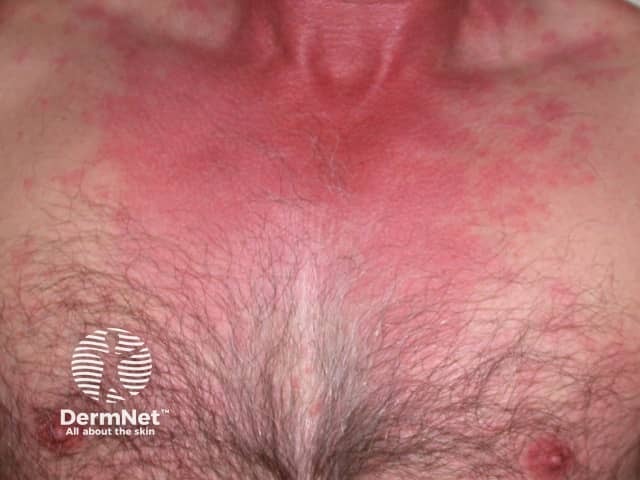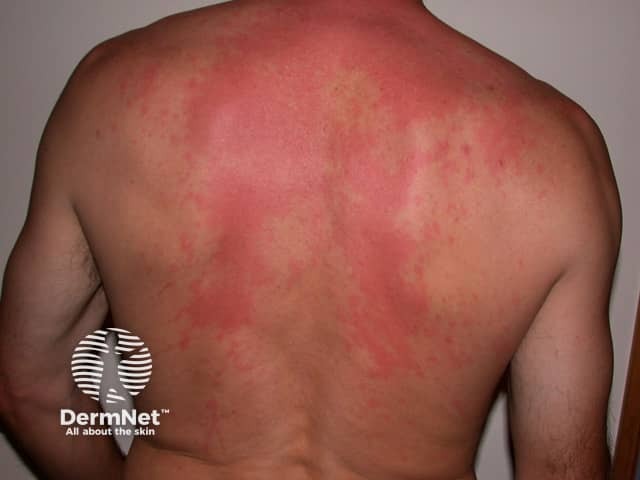Main menu
Common skin conditions

NEWS
Join DermNet PRO
Read more
Quick links
Author: Hon Assoc Prof Amanda Oakley, Dermatologist, Waikato Hospital, Hamilton, New Zealand, 2004.
Scombroid fish poisoning is a toxic reaction to decomposing scombroid fish, such as kahawai, mackerel, tuna, bonito and butterfly kingfish. These have dark meat. Occasionally other fish species are responsible.
Scombroid fish contain a chemical called histidine. Bacteria multiply in fish stored in warm conditions (>15C) and turn the histidine into scombrotoxin. The main component of scombrotoxin is histamine, which is responsible for the symptoms of scombroid poisoning.
Cooking or smoking the fish does not reduce histamine levels even though the causative bacteria have been destroyed. The amount of histamine in the meat varies according to the decomposition in that particular portion, so only one or two that eat the meat may be affected by scombroid poisoning while the rest of the diners will feel fine.
Scombroid poisoning is not infectious. Nor is it due to allergy. It is quite safe to eat the same kind of fish again as long as it is freshly caught and chilled.
Illness begins within 30 minutes to an hour or two of consuming the fish, usually with a feeling of warmth and flushing. An impressive rash develops on the face, neck, chest, and upper back. Affected areas are bright red, hot and itchy. The rash is a form of urticaria, but unlike an allergic reaction, there is no wealing (skin swelling).

Scombroid rash

Scombroid rash
At the same time as the rash, other symptoms may occur:
Symptoms usually persist for about three hours, but in severe cases, it may take longer to recover.
All symptoms should improve, and may completely resolve, within 10–15 minutes of taking a quick-acting, non-sedating or conventional antihistamine tablet.
If there is not immediate improvement in symptoms, seek urgent medical attention.
In bad attacks, it may be necessary to continue the antihistamines for several days. Suitable medications include:
So-called H2 blockers such as cimetidine and ranitidine are also helpful (these are usually used to reduce stomach acidity).
Scombroid poisoning is not an allergic reaction (anaphylaxis). Therefore, it does not require adrenaline (epinephrine) injections or corticosteroids. As it is not an infection, antibiotics are not helpful.
Freshly caught and killed fish should be immediately refrigerated or kept on ice, and eaten the same day.
Decomposing fish sometimes has a peppery taste but a normal taste does not guarantee safety.
International and local hygiene regulations apply to the handling of fish. The US FDA requires fish to have a histamine level of less than 50 mg/kg; a level of 200 mg/kg is considered hazardous.